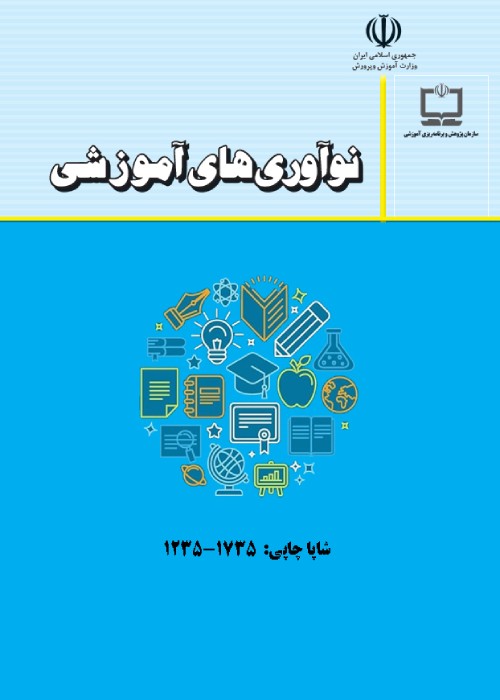Designing a social accountability model for primary schools of Iran: A grounded theory study
Author(s):
Article Type:
Research/Original Article (دارای رتبه معتبر)
Abstract:
The present study was conducted to design a social accountability model for Iranian primary schools. The study was applied in terms of purpose, and in terms of data collection, it was qualitative with grounded theory design. The research population included professors of educational management in the state Universities of Iran, and the research sample were selected using purposeful approach, theoretical sampling and through the criterion of theoretical saturation. Data were collected using semi-structured interview, and they were analyzed using Strauss and Corbin's method in three stages of open, axial and selective coding through MAXQDA 18 software. The results showed that based on Strauss and Corbin's framework, five categories (attention to public schools and the age of technology, the existence of ethics and law, the existence of evaluation organizations in society, the educated community, and the school and its management) were identified in terms of the causal conditions. Also, seven categories of phenomenon-centric including the participation, environment, conscience, finance, culture, and community, clarification, and awareness and learning were determined. In terms of strategies, five categories including the activities of civil associations and institutions, civil society awareness of its citizenship rights and school expectations, the school management's willingness to be accountable, economic and welfare status, and school communication were identified. In terms of intervening conditions, six categories including the beliefs and norms of the community, attention to school stakeholders, school quality, effective leadership, community's demanding, and supportive management styles were determined. Also, in terms of contextual conditions, four categories were identified, i.e., the status of society, the existence of formal and virtual types of media, type of school system, and the level of awareness and democracy in society. Furthermore, in terms of consequences, eight categories, i.e., increasing the participation in the school affairs, increasing the performance and effectiveness of teachers in all areas, supporting and trusting the schools, clarification, intellectual and cultural development of society, better learning and performance of students, improving performance and effectiveness of schools, and educational justice, were identified.
Keywords:
Language:
Persian
Published:
Quarterly Journal of Educational Innovations, Volume:22 Issue: 85, 2023
Pages:
55 to 82
magiran.com/p2576452
دانلود و مطالعه متن این مقاله با یکی از روشهای زیر امکان پذیر است:
اشتراک شخصی
با عضویت و پرداخت آنلاین حق اشتراک یکساله به مبلغ 1,390,000ريال میتوانید 70 عنوان مطلب دانلود کنید!
اشتراک سازمانی
به کتابخانه دانشگاه یا محل کار خود پیشنهاد کنید تا اشتراک سازمانی این پایگاه را برای دسترسی نامحدود همه کاربران به متن مطالب تهیه نمایند!
توجه!
- حق عضویت دریافتی صرف حمایت از نشریات عضو و نگهداری، تکمیل و توسعه مگیران میشود.
- پرداخت حق اشتراک و دانلود مقالات اجازه بازنشر آن در سایر رسانههای چاپی و دیجیتال را به کاربر نمیدهد.
In order to view content subscription is required
Personal subscription
Subscribe magiran.com for 70 € euros via PayPal and download 70 articles during a year.
Organization subscription
Please contact us to subscribe your university or library for unlimited access!



